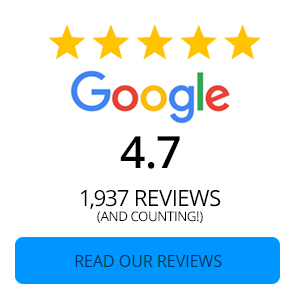Marriage isn't just a matter of walking down an aisle and saying "I do." When you get married to someone, you are about to embark on a life together. And that new life often means big changes when it comes to your finances. Although you have the option of keeping things as separate as possible, getting married can change how much tax you're responsible for, how much debt you have and whether you have your own savings and checking account or not.
Taxes
Marriage changes your taxes in big ways. While you don't have to file a joint return with your partner, gone are the days of filing as a single person or as head of household if you had dependents. Once you're married, you can file as a couple jointly or separately.
People often talk about the tax benefits of getting married, but the truth is that things can go either way. Getting married can push you and your spouse into a higher tax bracket, meaning you need to pay more to the IRS. Alternatively, marriage can lower your tax bill, so that you both end up owing less. As CNN notes, the "marriage penalty or bonus" can range from owing 12 percent of your total income or saving up to 20 percent on your tax bill. Often, couples that earn similar amounts face a higher tax bill after getting married, while couples that have very different incomes usually end up saving money.
When tax time comes around, it can be useful to do test runs of your tax returns. Try filling out the forms filing jointly, then filing separately to see which option leads to the greatest tax savings.
Savings and Checking Accounts
If you both work and have your own source of income but split bills, you're likely to have to decide whether you want to open a joint savings or checking account after you get married or continue to keep your finances separate. Since you'll be sharing bills, many argue in favor of a joint account, as it simplifies the process of paying shared expenses.
Before you open a joint account together, it's important to be very clear about what you'll use it for. You might have a shared savings account that acts as an emergency fund and a shared checking account that you dip into to pay your rent or mortgage, utilities bills and other shared costs.
If you or your spouse drain the account to go on a shopping spree, it's likely the other person isn't going to be super happy about that. For that reason, it's a good idea to keep a separate account as well. You and your spouse can decide together how much of your monthly income goes into shared accounts and how much you can keep aside for your personal accounts.
Debts
Debt is where things can get sticky after you get married. The good news is that you don't take on responsibility for a person's debt when you marry them. If your spouse has $20,000 in student loans, you won't end up with $20,000 in student loans after the wedding.
While you're not responsible for your partner's preexisting debt, any amount someone owes will still have an effect on your finances. For example, your spouse will have to work to pay off his or her student loans, which can derail your plans to save for a house or interfere with any other joint financial goals you have.
In case of debt that you take on after the wedding, who is responsible for what depends on where you live and who took out the debt. According to Nolo, nine states in the U.S. are community property states. That means any loans taken out in the marriage are shared loans, even if they are in one person's name. In the rest of the U.S. (including Georgia), the debt belongs to the person who takes it out. If you and your spouse get a mortgage together, you share responsibility for it. But if your spouse gets an auto loan that's only in his or her name, that debt is his or her's alone.
As you get ready to embark on a new life together, Coosa Valley Credit Union can help. Whether you're looking for a mortgage as a couple or want more information on opening a joint savings or checking account, contact us today to learn more about what we can offer you.

